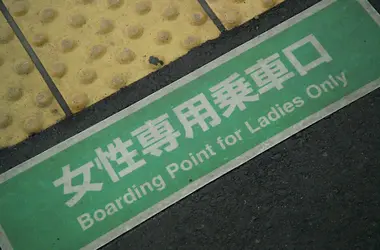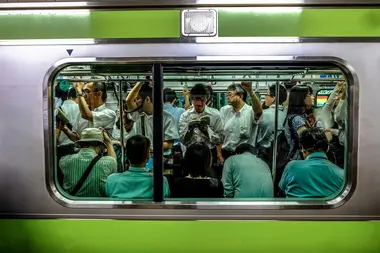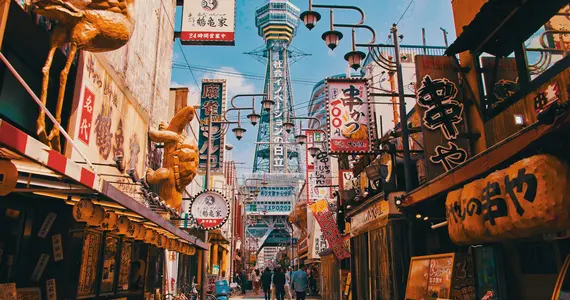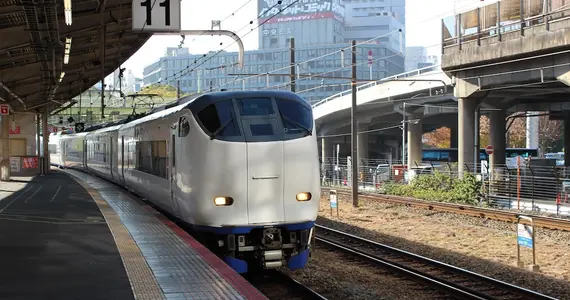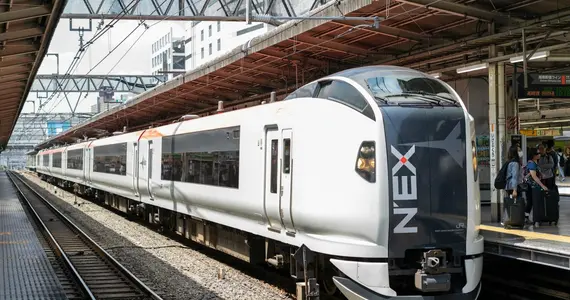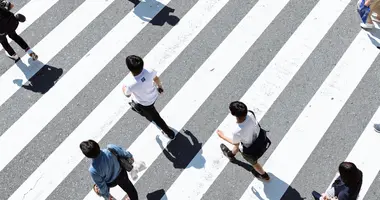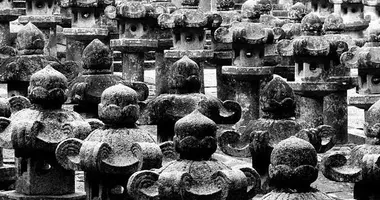Rules to follow on Japanese trains
Mistakes not to make in Japanese transport
Queuing, giving up your seat... Here are our tips for behaving correctly and respecting Japanese etiquette when taking the train in Japan!
Specially designated carriages and seats
- Nowadays, many Japanese trains have a car reserved for women, marked both on the train and on the platform with a pink sign. Try to pay attention to the signs and surroundings, and don't get on one of these cars.
What's more, some trains also have the first carriage with the notion of "no electronics" where you have to switch off your cell phone. In theory, these cars have been created for elderly people who are worried about interference with their pacemakers.
Finally, be very careful not to sit in priority seats. If you're worried about offending someone, stand up, say "dozo", then take a few steps away so they don't feel the need to refuse.
Some Limited Express trains have first-class carriages called "Green Car". Be careful not to get on them unless you've paid the supplement.
Cell phones and chatter
- Make sure your cell phone is set to vibrate or silent mode. Use headphones or earphones to listen to videos or music.
- Don't phone on trains or subways! This is very bad manners in Japan.
- What's more, you'll find that most Japanese don't speak loudly on the train. It's a good idea to follow their example and keep loud conversations to a minimum.
Food on trains
While it's permissible, and even advisable, to eat on Shinkansen trains, especially the famous eki-ben, on intercity trains and subways, eating is highly frowned upon! So avoid eating anything on trains in Japan.
Don't take up too much space
Japanese trains can be very crowded. If necessary, be prepared to cram into seats or aisles. If you're traveling late at night on a crowded train, don't be surprised if a particularly exhausted employee uses your shoulder as a pillow!
Get in line to board the train. There are markings on the platforms to show where the doors will be (often O or △) and how to line up two by two while you wait. Once the train arrives, the line will separate on either side of the doors to allow passengers to get off the train.
If you have a lot of luggage, try to keep it as close to you as possible. Japan being a safe country, you can put your small bags (but still keep your valuables with you) in the nets at the top of the seats. Otherwise, hold them in your hand or in front of you, as close to your body as possible. This can be tricky, but try not to touch or even graze the person next to you. Stick your hands together.
When you're seated, don't spread yourself over two seats, but respect the space allotted to each passenger. In fact, there has been a series of posters asking seated gentlemen not to spread their legs too far apart so as not to get in the way of their neighbors or prevent people from sitting on the seat next to them!


